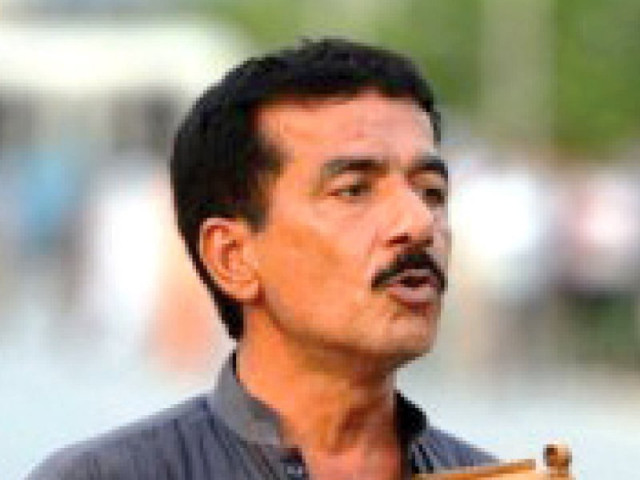Jinnah Avenue episode: As millions watched Isloo spectacle, SC counts the cost
Issues notices to interior secretary, IG police, PEMRA chairman, commissioner and Islamabad district magistrate.

Sikandar. PHOTO: FILE
The judiciary was not pleased with the way the executive authorities managed the Jinnah Avenue incident in which a gunman, Sikandar along with his wife and two kids, had kept Islamabad police occupied for hours.
Chief Justice Iftikhar Muhammad Chaudhry led a three-judge bench on Monday and issued notices to the Interior Secretary, Inspector General Police (IGP) Islamabad, Chairman Pakistan Electronic Media Regularity Authority (PEMRA) Chief Commissioner and district magistrate Islamabad to appear before court on Friday and submit a para-wise reply on a petition filed by one habitual petitioner Advocate Muhammad Tariq Assad.
Justice Chaudhry appreciated the petitioner for filing such a petition and termed it a national service when the petitioner regretted for filing a petition which was full of errors.
In its written order, the court observed that prima facie, it seems neither respondents nor the magistrate has come forward to resolve the issue, which ultimately resulted in the prolonged standoff.

“I did file this petition under article 199 of the Constitution mistakenly [that means it is not a Constitutional petition under article 184 (3)] but the court graciously ignored this error and considered it as a constitutional petition and the bench also corrected me to include the name of district magistrate Islamabad as the respondent which I did not mention in the petition earlier,” Tariq Assad remarked while talking to reporters outside the courtroom.
Assad also said that he drafted the petition briskly in Rawalpindi’s Ayub Park at the urging of his younger brother who happens to be an architect.
During the hearing of the case, the chief justice also presented his analysis of minimum losses due to the prolonged Jinnah Avenue episode. A person kept the entire nation hostage for three hours, the chief justice said. “If our population is 200 million at least 10 million people were busy watching this incident on TV screens, including state-run media for more than three hours. That means 30 million people wasted their valuable time, adding that in terms of money, if a person earns Rs10 per hour, then three hours of lost time reaches an estimate of Rs30 billion.
During the proceedings, Tariq Assad portrayed the media equivalent to a mafia organisation. The chief justice did not stop him; however, Justice Sheikh Azmat Saeed intervened and asked the petitioner to mind his language and use suitable words before the apex court.
Justice Jawwad S Khawaja also backed his fellow judge on the issue. However, Assad remained defiant and said that he was intentionally referring this term to the media, adding that it was the responsibility of the executive authorities to keep the general public away from the crime scene.
He also said that Interior Minister Chaudhry Nisar Ali Khan confessed that Jinnah Avenue episode was prolonged due to his intervention. After his confession, Chaudhry Nisar should have tendered his resignation and he has to go, Assad told the court.
Published in The Express Tribune, August 20th, 2013.



















COMMENTS
Comments are moderated and generally will be posted if they are on-topic and not abusive.
For more information, please see our Comments FAQ